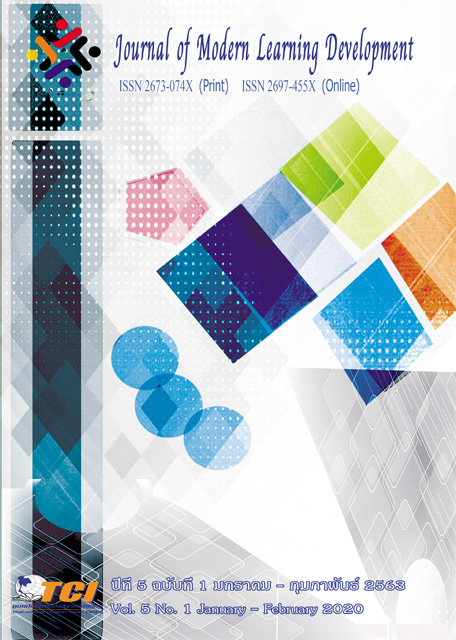The Participatory Learning Management based on the four Brahmavihara Dhammas of upper Secondary School Students in Nakhon Khon Kaen School, Mueang District, Khon Kaen Province
Main Article Content
Abstract
The aims of this research were: to study the conditions, to compare and to present the guidelines and recommendations for promoting the participatory learning management based on the four Brahmavihara principles (brahmavihāra, sublime states of mind) of upper secondary school students in Nakhon Khon Kaen school, Mueang district, Khon Kaen province. This study was conducted by means of a quantitative research (survey method). The population consisted of 697 high school students. The sample consisted of 248 high school students selected by using the method of Krejcie& Morgan. The instrument used in the research was a questionnaire. The statistics used in the data analysis were: Percentage, Mean, Standard Deviation, t-test (independent-samples) and F-test (One-Way Analysis of Variance).
The research results were as follows:
1.The conditions of the participatory learning management based on the four Brahmavihara principles of upper secondary school students in Nakhon Khon Kaen school, Mueang district, KhonKaen province in overall and all studied aspects: 1) mettā (loving kindness); 2) karuṇā (compassion); 3) muditā (sympathetic joy) and 4) upekkhā (equanimity) were rated at a high level of practice.
2.The comparative results of the participatory learning management based on the four Brahmavihara principles of upper secondary school students in Nakhon Khon Kaen school, Mueang district, Khon Kaen province, classified by the samples’ gender and GPA showed indifference with the significance level of .05; inconsistent with the set hypothesis. Classified by their classes, there was the difference of practice with the statistical significance level of .05; consistent with the set hypothesis.
3.The recommendations for promoting the participatory learning management based on the four Brahmavihara principles are that the educational institutions must organize activities related to teachers, students and parents or all relevant parties to participate in learning management by using the principles of loving kindness, compassion, sympathetic joy and equanimity in all activities and learning processes in the school and in the community in order to create co-learning between teachers, students, parents and the community.
Article Details
References
พระจินดา สุชาโต. (2562). สภาพการจัดการเรียนรู้สังคมศึกษา สาระหน้าที่พลเมือง วัฒนธรรม และการดำเนินชีวิตในสังคม ด้วยหลักพรหมวิหาร 4 ของครูในสังกัดสำนักงานเขตพื้นที่การศึกษามัธยมศึกษา เขต 24 จังหวัดกาฬสินธุ์. ครุศาสตรมหาบัณทิต สาขาวิชาการสอนสังคมศึกษา. บัณฑิตวิทยาลัย: มหาวิทยาลัยมหาจุฬาลงกรณราชวิทยาลัย.
พชร แสงเพชร. (2558). การจัดการเรียนรู้เพื่อพัฒนาคุณลักษณะอันพึงประสงค์ขอนักเรียนตามหลักอิทธิบาท 4 โรงเรียนพระปริยัติธรรมแผนกสามัญศึกษา กลุ่มที่1 กรุงเทพมหานคร. พุทธศาสตรมหาบัณฑิต สาขาวิชาการบริหารการศึกษา. บัณฑิตวิทยาลัย: มหาวิทยาลัยมหาจุฬาลงกรณราชวิทยาลัย.
พระธรรมปิฎก (ป.อ. ปยุตฺโต). (2542). พุทธธรรม. (พิมพ์ครั้งที่ 8). กรุงเทพมหานคร : โรงพิมพ์มหาจุฬาลงกรณราชวิทยาลัย.
พระมหาอนุพันธ์ อนนนฺเมธี. (2562). การพัฒนากิจกรรมการเรียนรู้แบบมีส่วนร่วมตามหลักศีล 5 ของครูผู้สอนสังกัดสำนักงานเขตพื้นที่ประถมศึกษาที่ประถมศึกษาขอนแก่น เขต 5. พุทธศาสตรมหาบัณทิต สาขาวิชาการบริหารการศึกษา.บัณฑิตวิทยาลัย: มหาวิทยาลัยมหาจุฬาลงกรณราชวิทยาลัย.


